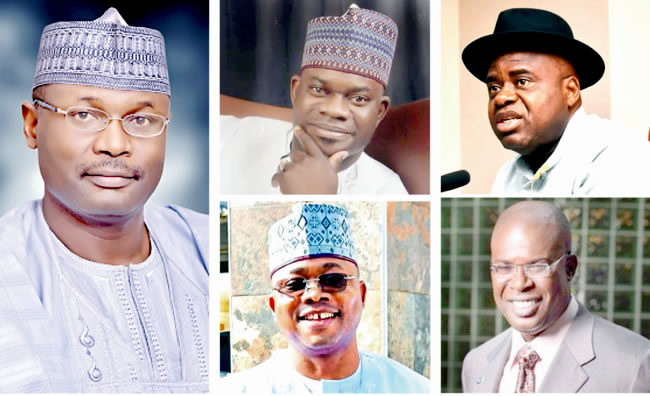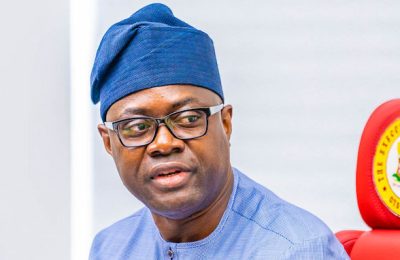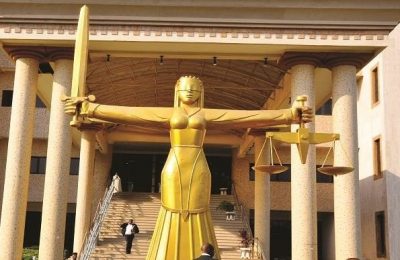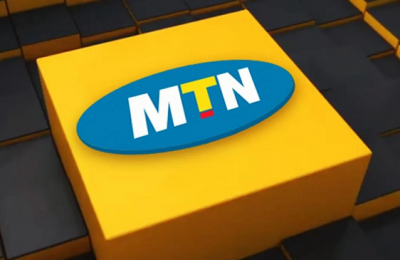
It’s yet another off-season election as the people of Kogi, Bayelsa, and Imo go to polls on Saturday, November 11 to elect governors for their states. General Editor, TAIWO ADISA, examines the issues affecting the elections.
This time next Sunday, the horizon in Kogi, Bayelsa, and Imo States will be buzzing with election activities. People of the three states are scheduled to go to the polls to elect their governors on Saturday, November 11.

According to the Independent National Electoral Commission (INEC), all appears set for the conduct of the elections with the conclusion of most of the scheduled activities leading to D-Day. INEC has said that 18 gubernatorial candidates were cleared to partake in the election in Kogi, 16 in Bayelsa, and 17 in Kogi, while over five million registered voters are expected to partake.
Data made available by INEC showed that Bayelsa has a total of 1,056,862 registered voters, while Imo has 2,419,922 and 1,932,654 voters registered to vote in Kogi State, to give a combined total of 5,409,438 in the three states. Of course, the number of registered voters does not tell the whole story about elections. There are several factors that will define how the election will go. Security is one of the issues, intrigues, and counter-play of forces in the states as well and the conduct of INEC as an institution would also go a long way in determining the turnout of events. The question that would be on the lips of many is whether Prof Mahmood Yakubu and his colleagues in the commission have put lessons learned during the last general elections to use so as to deliver a well-acknowledged election this time.
Besides, the November 11 election is the first of the set of off-cycle elections that would be conducted under the leadership of President Bola Tinubu. Former President Goodluck Jonathan went into the history books as one leader whose era witnessed free and fair off-cycle elections. Because the elections are being held in just three of the 36 states, the disposition of the incumbent government at the Federal level could go a long way in tilting the outcome. Would the government encourage fair deployment of security operatives to ensure an acceptable outcome by all or stifle the system to favor its own party? Those are some of the questions that would agitate the minds of the voting public, even as voters in the remaining off-cycle elections in Edo, Ondo, Anambra, Ekiti, and Osun would be watching.
In recent years, the electoral body has utilised the advantage of off-cycle elections to perfect its procedures ahead of the next general elections. For instance, the elections in Anambra, Ekiti, and Osun were used to test-run the use of iREV ahead of the 2023 elections. Whether the lessons learnt from the test runs reflected positively in the general election is another question, though.
The three states going to the polls on Saturday have peculiar characters. In recent years, violence seems to dictate the pace in all three states. Kogi was a specter of violence in the last governorship election, with ta ta ta ta songs (euphemism for gunshots) on the lips of many during and after the polls. Bayelsa and Imo have also had their share of electoral violence in recent years. That Chief Timipre Sylva, a former governor is the leading opponent of the incumbent Senator Duoye Diri, makes the election of that state command some critical looks. Imo is nearly becoming the killing field of the South East, where activities of unknown gunmen complement the unwholesome violence being unleashed on the people by suspected loyalists of IPOB and ESN.
The President’s speaks
On Thursday, President Bola Tinubu appealed for peaceful, free, and fair elections in the three states. While presenting official flags to candidates of the ruling All Progressives Congress (APC) at the presidential Villa, Abuja, Tinubu called for the conduct of free, fair, and transparent elections in Imo, Kogi, and Bayelsa states. “All I am pleading for is for free and fair elections. I believe we will do well,” the President told the three candidates including Usman Ododo, (Kogi), Senator Hope Uzodimma (Imo), and Timipre Sylva of Bayelsa. The event was also attended by party leaders and stakeholders. Despite the president’s admonitions, the fear of violence has continued to echo as one of the main challenges that would rock the election in the three states.
FEAR OF VIOLENCE
On Wednesday last week, the President of the Nigeria Labour Congress (NLC), Comrade Joe Ajaero was the victim of a serious attack launched by suspected gunmen in their bid to stop some picketing exercise planned by the organised Labour in Imo state. The violence unleashed on the labour leader left him with bloodied eyes and scars on his body. However, there were conflicting reports from the Police in the state and the State government. While the Police said it acted to save Ajaero from the hands of the gunmen, the state said it had no hands in his ordeal. Incidents of violent attacks on political and non-political targets have been commonplace in the state in the last four years. The sad aspect of the challenge is that the perpetrators have almost always worked away freely.
Kogi has also had its share of violent incidents in the build-up to this election. There was an incident that pitched the incumbent governor Yahaya Bello against the candidate of the Social Democratic Party (SDP) in the election, Muritala Ajaka as both parties accused each other of an assassination attempt. Two weeks ago, Governor Bello was equally involved in an alleged assassination attempt, which he later clarified to be a mere misunderstanding between his security details and some security operatives on the road.
Bayealsa is on its own notorious for violent eruptions during elections. Previous elections had witnessed early morning gunshots and the disappearance of polling officials. The stakes are really high as the incumbent Governor Duoye Diri, under the banner of the Peoples Democratic Party (PDP), is facing fire from a former governor, Timipre Sylva of the APC. The APC is particularly bitter that Diri usurped its candidate, David Lyon, who had been declared winner of the election four years ago, only for the Supreme Court to sack the Governor-elect on February 13, a day before his inauguration.
INEC had publicly acknowledged the threat of violence to the elections. In separate public communication, the electoral body had said that the growing insecurity in the three states was a source for concern and a negative trend that could affect the elections. Though INEC had suspected that the growing violence could affect voter turnout, the effect could be more. The credibility of an election held under siege would equally be at stake.
Early in October, INEC’s National Commissioner and Chairman of the commission’s Information and Voter Education Committee, Mr. Sam Olumekun, said of the situation: “The commission is concerned about the spate of insecurity and violence, including clashes among supporters of political parties and candidates in the forthcoming elections.
“In our engagement with political parties, the commission has constantly called on parties to rein in their supporters from actions capable of jeopardizing the peaceful conduct of elections in Nigeria.
“INEC earnestly appeals to all political parties and candidates to avoid utterances and acts that may heat up the polity. The commission will continue to closely monitor the situation and sustain its engagement with security agencies and stakeholders to ensure peaceful conduct of elections in the three states.”
Political Intrigues and godfathers
The election in Kogi is being closely watched because of the possibility of its outcome rewriting well-held and popular positions that have almost become stereotypes. It is believed that Kogi East is the vote basket of the state. The area has dominated the political setting since the creation of the state, largely on account of its voting population. It is said that the area is resident to 51 per cent of the total voter population in the state. As a result, the area has produced governors since the inception of the state and until fate pushed things the way of outgoing Yahaya Bello.
The death of former Governor Abubakar Audu just as the results of the 2019 election were being collated made the way for a rerun election that featured Bello who hails from Kogi Central. He is about to complete his second term in office. Incidentally, the candidate of his party in Saturday’s election also hails from Kogi Central Senatorial District. It is the first time a candidate from an area considered as minority would be handing over to someone from his immediate constituency. If Usman Ododo scales the huddle and gets elected, history would have been made in the state of many tongues and tribes.
The PDP had also picked Senator Dino Melaye as its governorship candidate. He hails from from Kogi West Senatorial District, the area with the second largest voting population in the state. His area has also only produced deputy governors in the state. If Dino equally wins, he will be rewriting history as the first governor of Kogi from the West. Muritala Ajaka of the SDP completes the list of the three front runners in Kogi. He hails from Kogi East and his victory will only go to affirm the stereotypical belief that the majority would always have its way.
In Bayelsa, the intrigues are almost as interesting as the situation in Kogi. Former Governor Timipre Sylva, Diri’s main challenger is not only of the ruling party, his supporters believed that he should come in to complete a tenure that was long overdue.
The directions of the godfathers in the state would, however, play a big role. The Ogbia people, the clan of former President Goodluck Jonathan have continued to play big roles in the politics of the state just as the immediate past Governor Seriake Dickson. Though sources have said that Diri is a unifier of some sort in the state and has performed well in terms of infrastructural development, the role of President Jonathan and Senator Dickson would have great effects on the outcome of the polls in the state.
There has been no clarity to the body language of the duo in recent times, as far as politics of Bayelsa state is concerned, said a source, who stated that Jonathan has been ambivalent with the PDP structure since he was overlooked in the process leading to the emergence of candidates for the last governorship election. Dickson on the other hand is said to be titling his support towards the APC, after he had worked against Senator Godswill Akpabio, the party’s preferred candidate for Senate Presidency in June. He is said to be doing all he could to make amends and return to the side of President Tinubu. Another source, however, said that Diri is equally working on every front to present himself as acceptable to all factors in the state.
In Imo, it’s endless drama as the ghost of Hon Emeka Ihedioha, who was sacked from the Government House and replaced with Senator Hope Uzodinma by the Supreme Court would not give the incumbent a breathing space. Ihedioha still has a case in the Supreme Court seeking to interpret sections of the court’s ruling in 2019. The apex Court had fixed that suit for December this year, when the November 11 election would have been held. Though the battle for Imo appears a straight one between the APC of Uzodinmma and the PDP, which has Senator Sylvester Anyanwu as a candidate, the Labour Party, which is fielding Athan Achonu is completing the three-horse race in the state.
Will iREV work?
One concern that would be on the minds of voters across Kogi, Imo, and Bayelsa states on Saturday is whether iREV will work. Though the equipment worked during the governorship election in the March 18 general election, its failure during the presidential election of February 25 was seen as a major blow by the LP and PDP. Whether iREV works or not, it is believed that parties contesting the elections should have learnt from the ruling of the Supreme Court on the election reporting platform. The apex court had said that it could not have ruled in favour of either the PDP or LP because they failed to provide alternate election results and that even though the failure to upload results on iREV might have reduced the credibility of the presidential election in the eyes of the people, it was not substantial enough to nullify President Tinubu’s victory.
All eyes are on INEC as the people of Kogi, Bayelsa, and Imo go into the polls on Saturday and it is hoped that the billion payers’ money it would expend on that election would be money well spent at the end of the elections.
READ ALSO FROM NIGERIAN TRIBUNE







